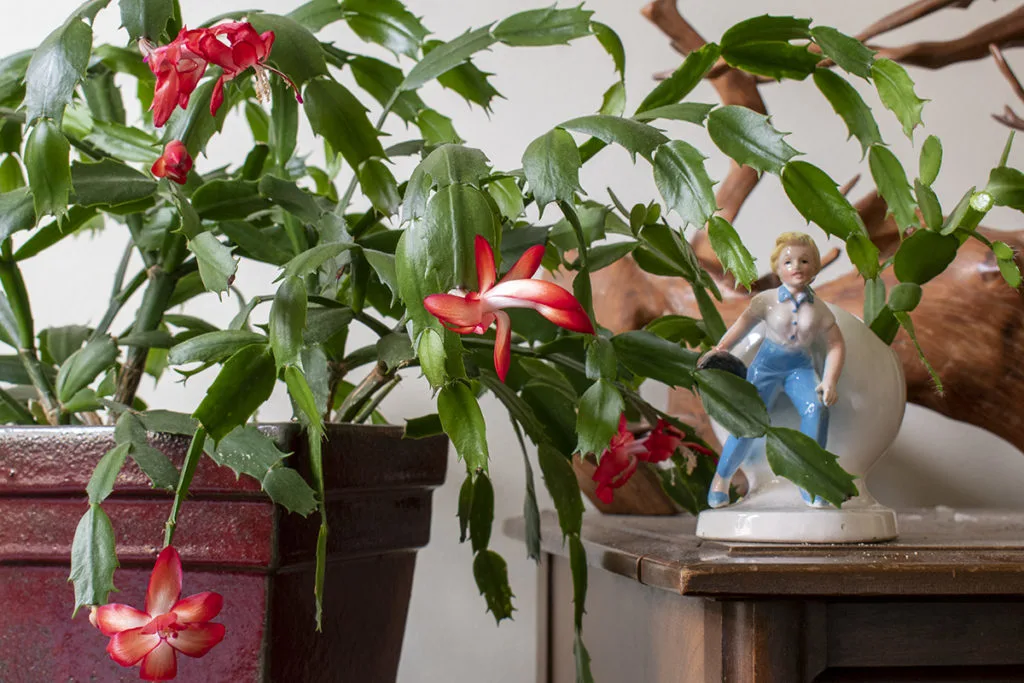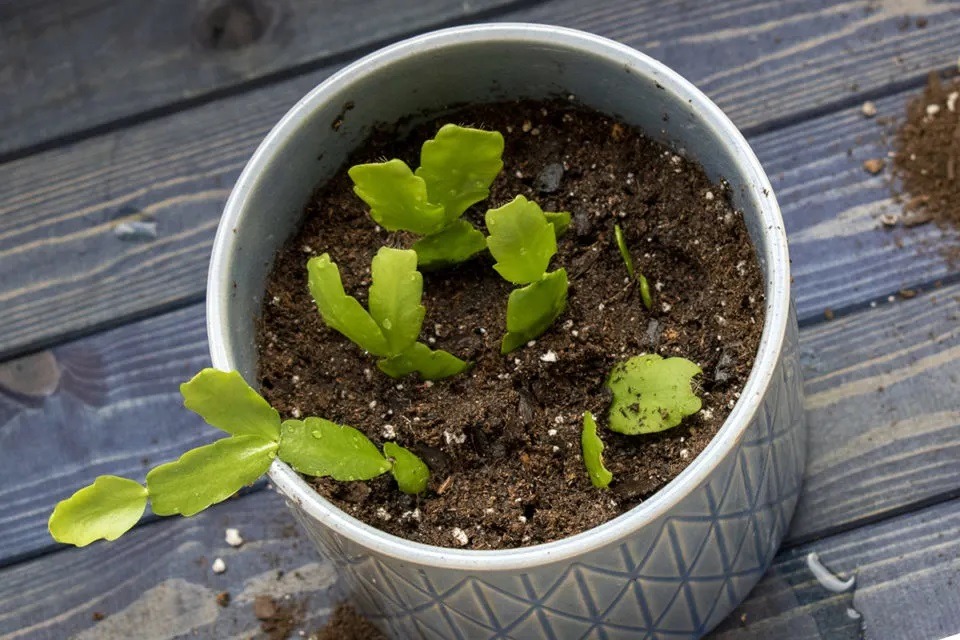Many houseplant lovers enjoy propagating and sharing their plants. But Christmas cactus, in particular, are often part of a family legacy, with cuttings handed down from a family member’s plant for generations.
These cuttings are often much more meaningful than your average propagated plant.
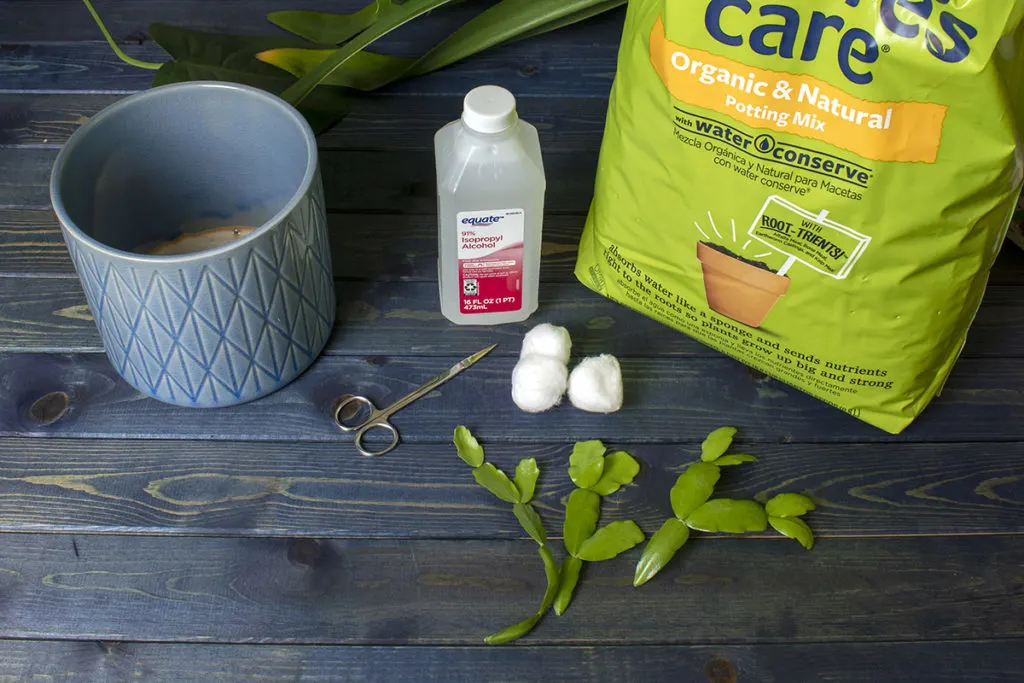
My largest Schlumbergera, a Thanksgiving cactus, started as a cutting given to me by my grandmother-in-law nearly twenty-two years ago.

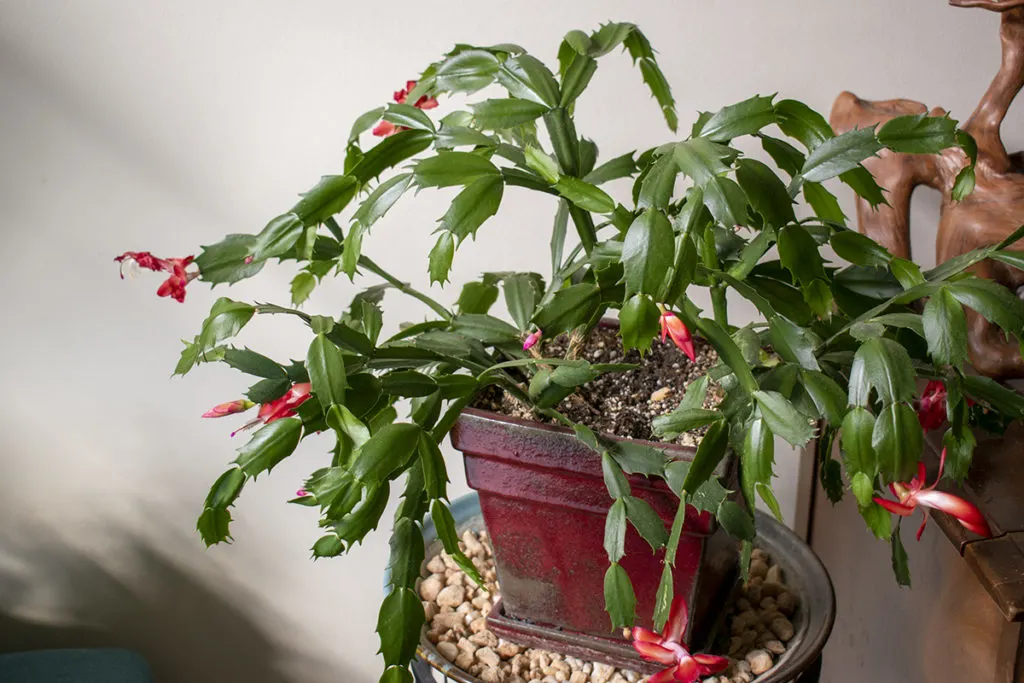
Christmas cacti (Schlumbergera bridgessii) are one of the easiest houseplants to propagate, and not just the Christmas variety, but all members of the Schlumbergera family – Thanksgiving cactus and Easter cactus as well. These particular plants are collectively known as holiday cacti, each named for the holiday they bloom closest to.
If you have no idea which kind you have, you’ll want to check out our full Christmas Cactus Guide
Part of their popularity as family gifts stems from how easy they are to propagate.
Whether you’re starting a plant as a living heirloom or just grabbing a cutting from a friend, I’ve got a few secrets up my sleeve that will ensure you end up with large, beautiful plants instead of a spindly twig sticking up out of the dirt.
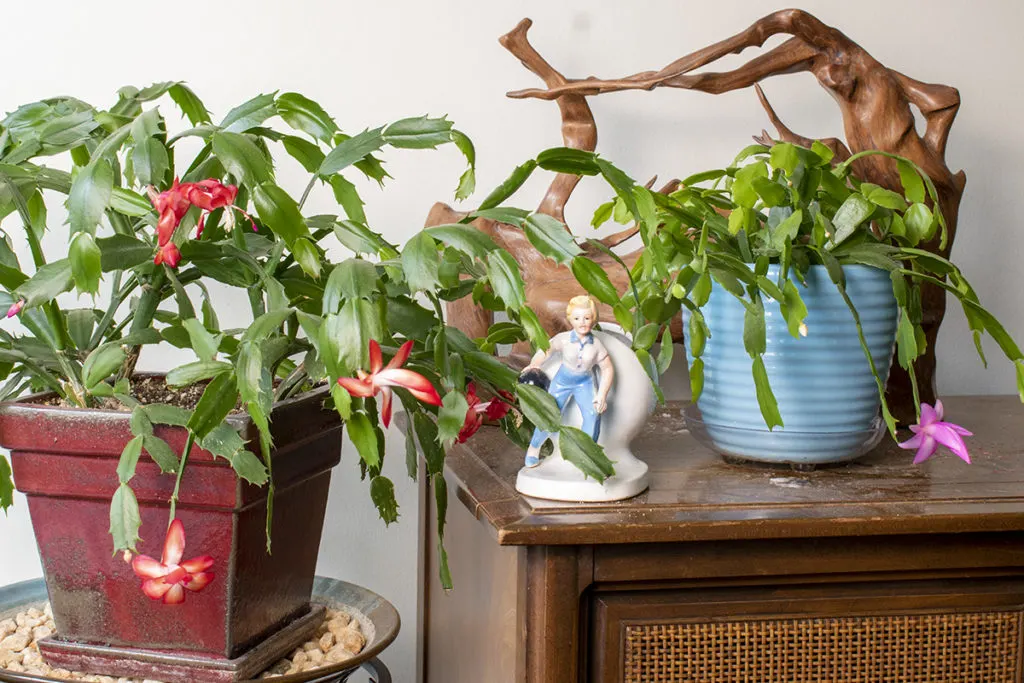
Let’s get our hands dirty and propagate some Christmas cactus!
Sanitize Your Tools
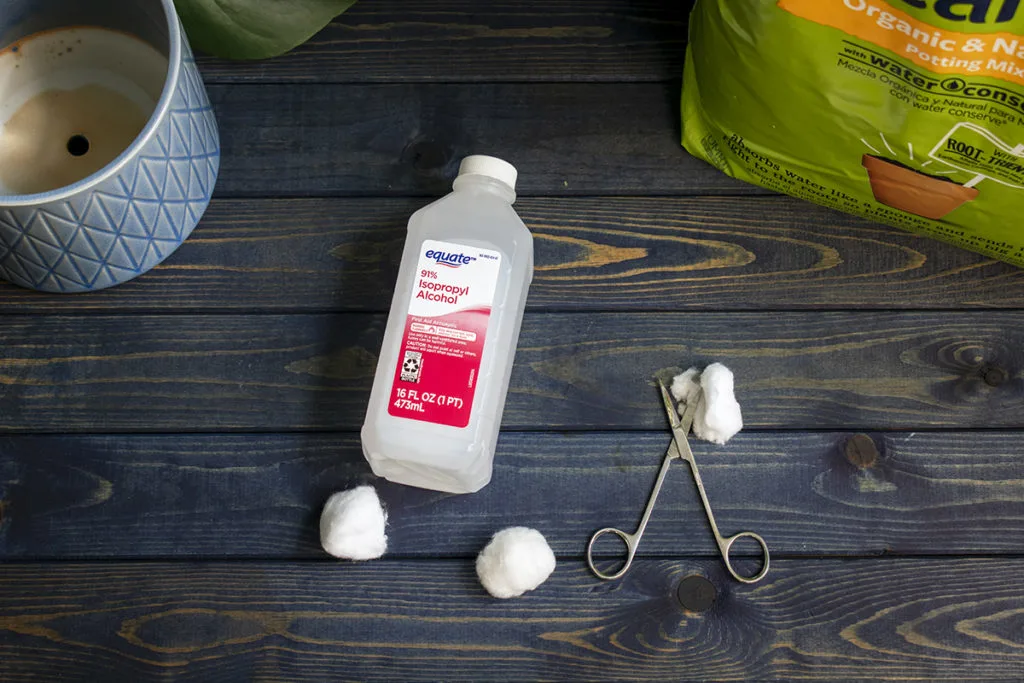
Whenever you’re taking a cutting from an established plant, it’s important to use clean and sterilized scissors. It only takes a few seconds to swipe your scissor blades with an alcohol-soaked cotton ball. This little extra step ensures you won’t transmit any disease-causing microbes to your plant.
Select Your Segment
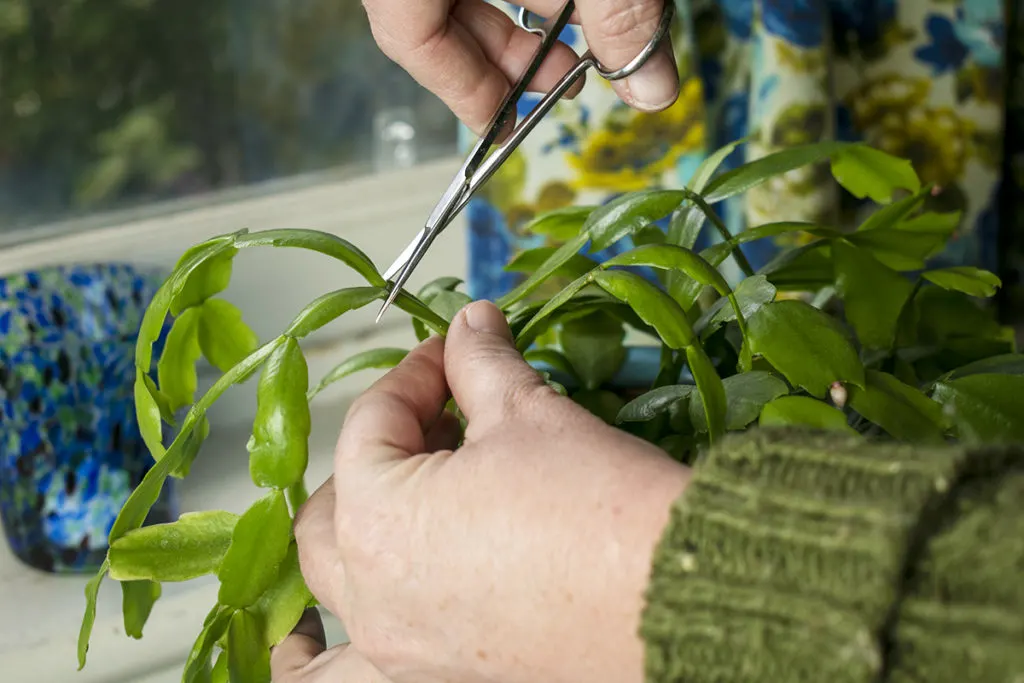
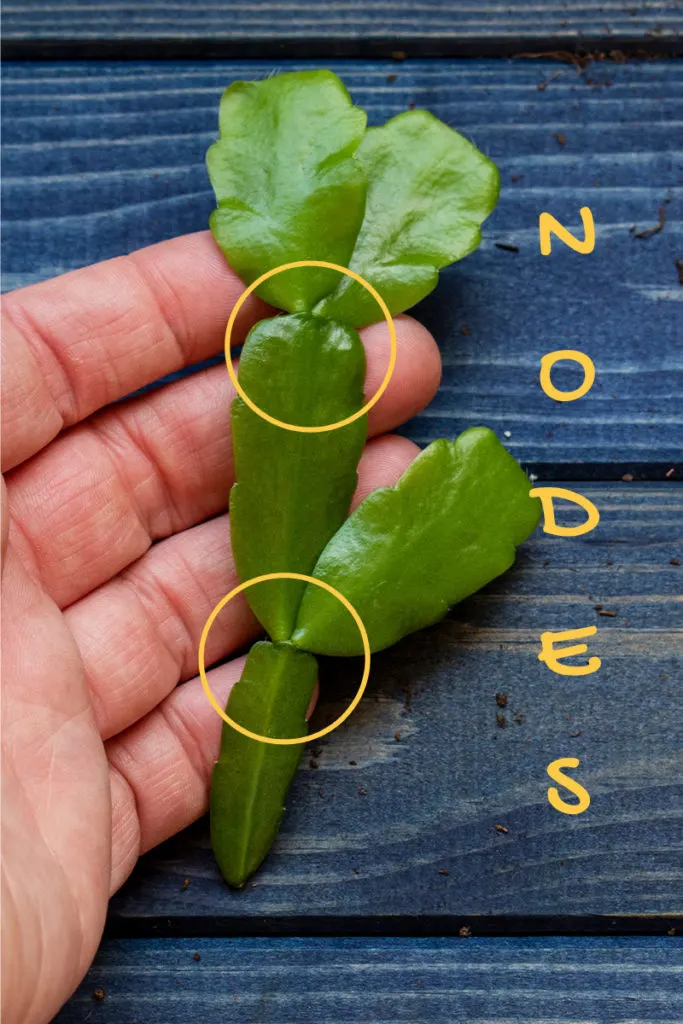
Now cut your main cutting into smaller segments, making sure each one has at least three segments to it.
Callous
These cuttings will need to callous over for a couple of days. Let them sit somewhere dry, out of direct sunlight. The open cuts on the plant are highly susceptible to rot until they callous over, which is why you can’t immediately poke them in the soil.
Start with a Full-Size Pot
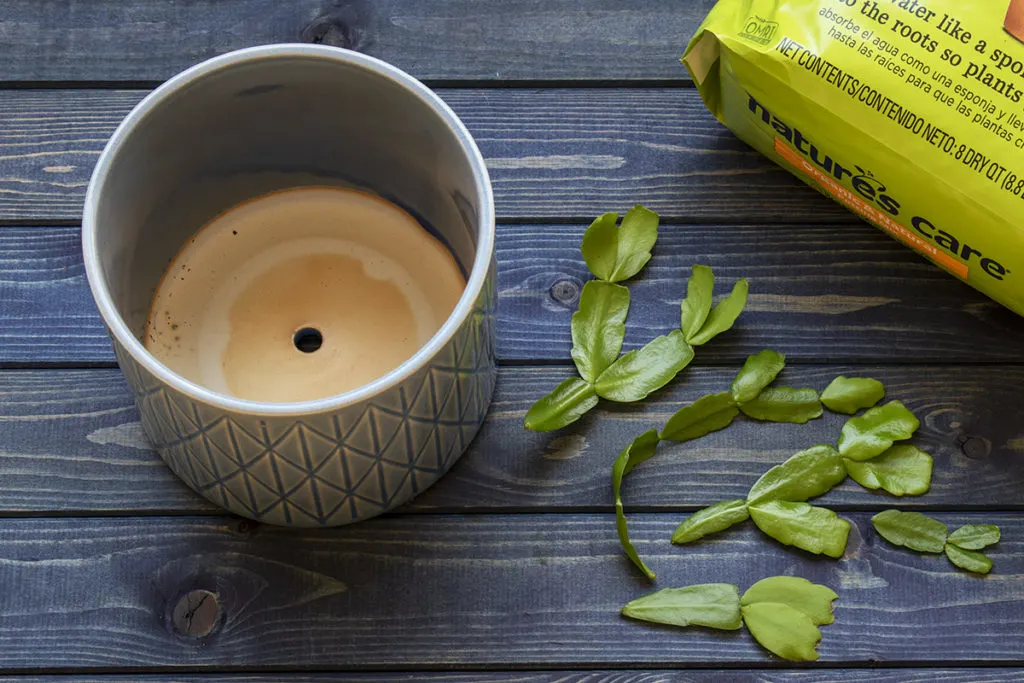
If you’ve ever tried to repot a Christmas cactus, then you know how delicate their segments are. You usually end up with a bunch of broken segments, no matter how careful you are. Christmas cacti do not like to be repotted and prefer to be a bit rootbound when they’re fully grown.
When starting a Christmas cactus cutting, start with a 6”-8” pot. This sized pot is the perfect size for a fully established Schlumbergera. You’ll be amazed at how quickly they grow and fill out if you start it in its permanent home.
And you won’t end up breaking off tender segments repotting it as it grows
Add Soil to Your Pot
Technically, Schlumbergera are succulents, not cactus so good drainage is important as they are susceptible to root rot. Premixed potting mixes specifically for succulents are great, but you can use any well-draining potting mix.
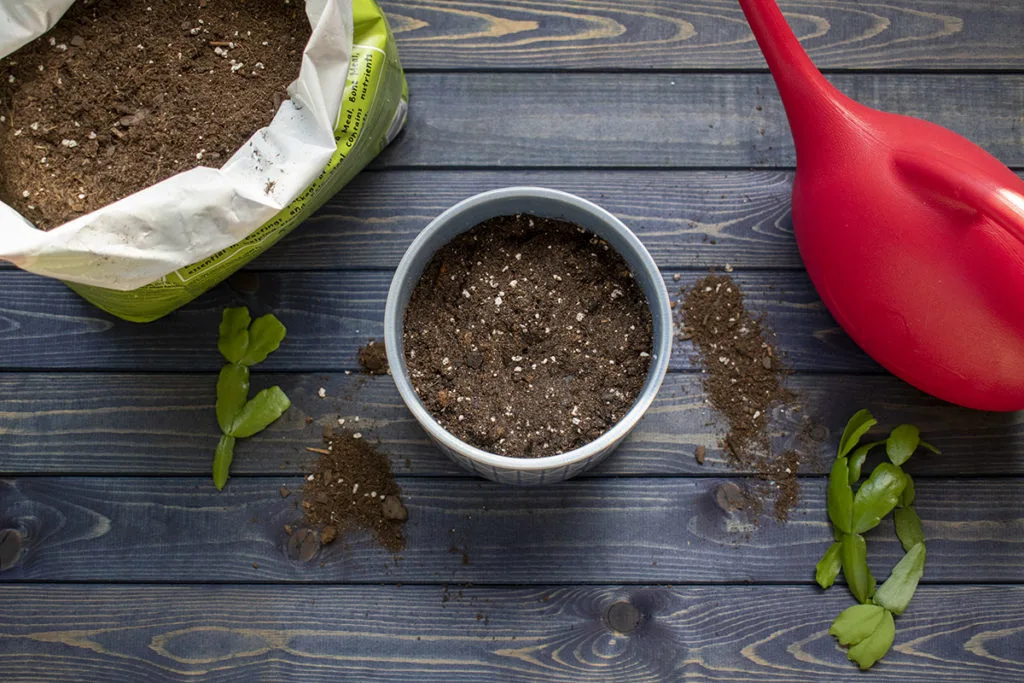
Fill your pot to within an inch of the top with soil and pre-moisten it. You want it to be quite damp but not soaking wet.
Plant Several Cuttings Together
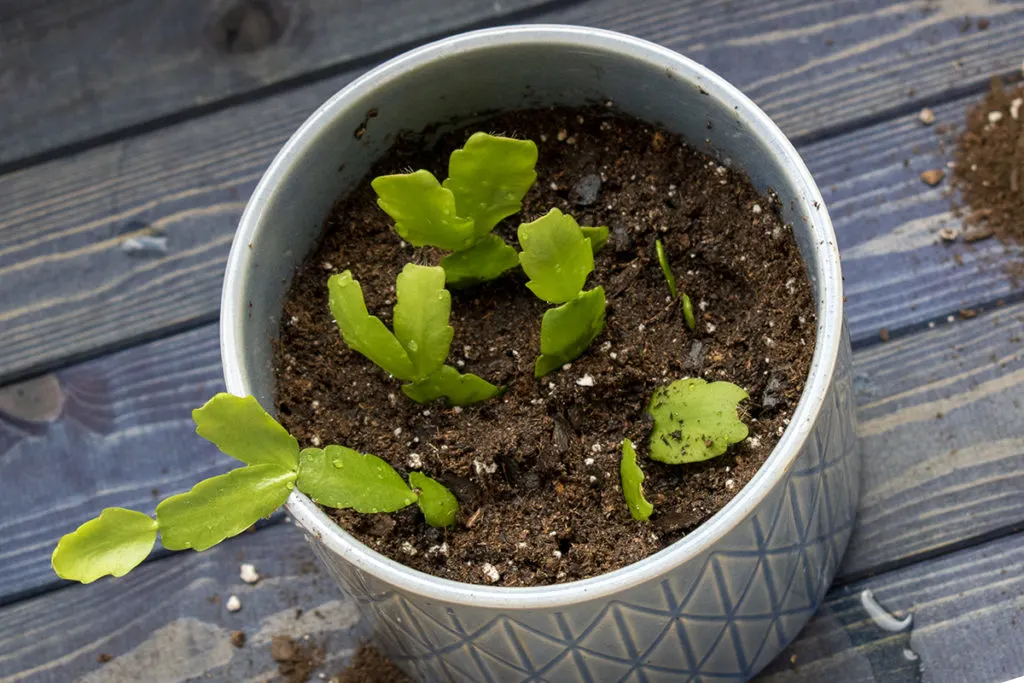
Sure, you can poke a cutting in the middle of your pot, and it will grow, and eventually, new branches will begin to form. However, planting several cuttings at once, close together, ensures that the cactus will fill out the pot faster.
And, if you check out all those Thanksgiving cactus that hit the stores during the holidays, you will notice most of them were started with two to three cuttings placed in the center of the pot as well, ensuring a nice bushy plant goes to market.
Plant each segment so that the soil covers ½” above the node; this is where the new roots will develop.
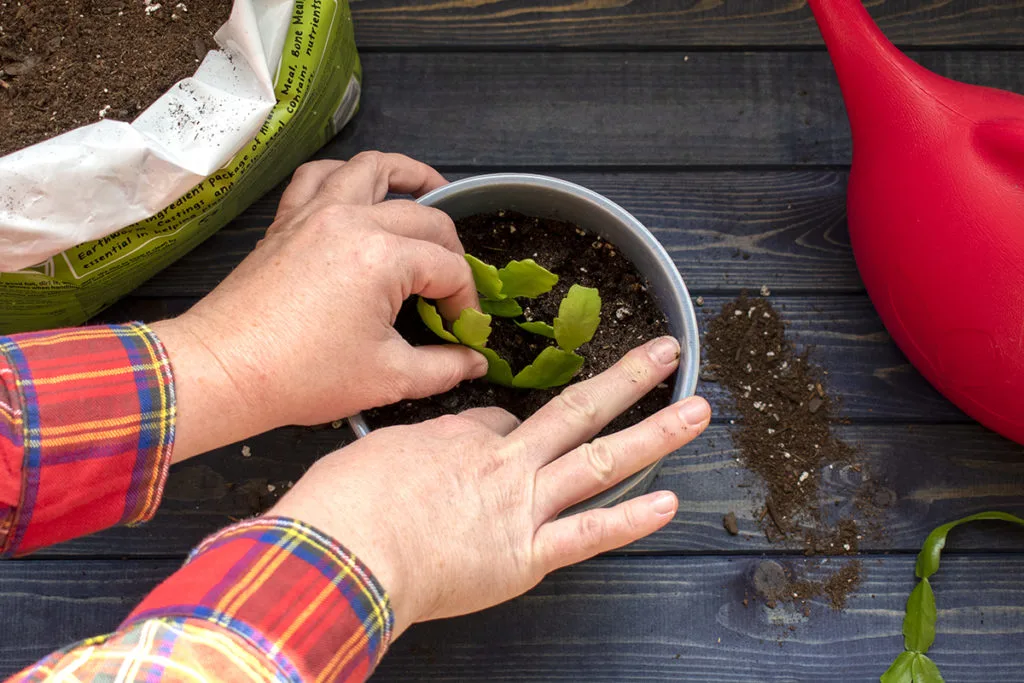
After about a month, you should notice new growth on your newly established plant. New segments are often red around the edges as they grow.
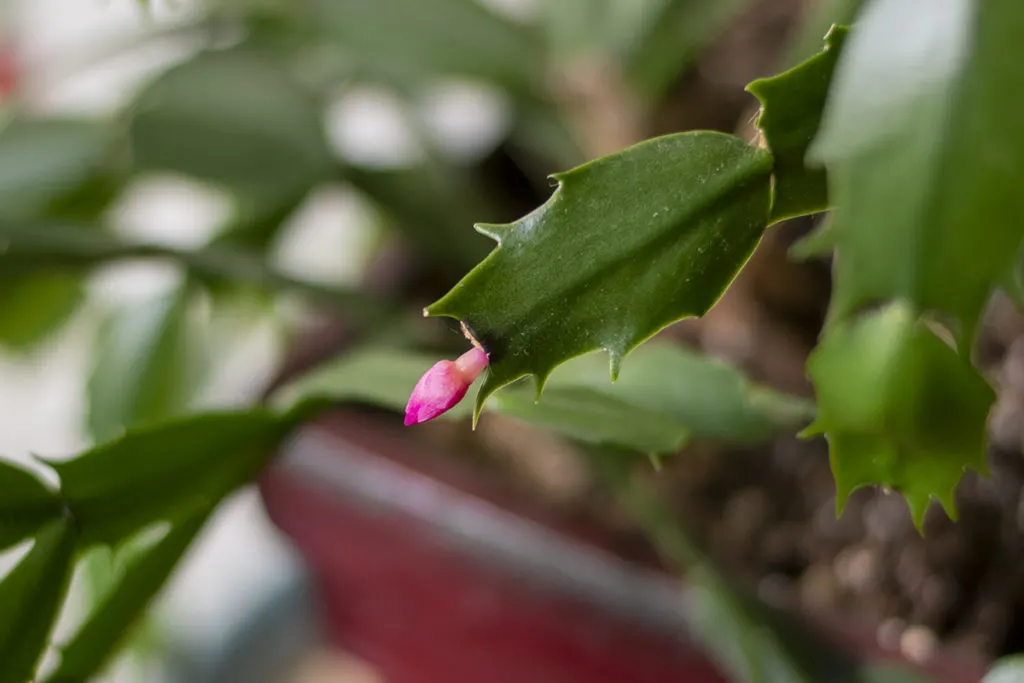
Can You Propagate Christmas Cactus In Water?
Yes, you can propagate a Christmas cactus using the water propagation method. For many plant lovers, half the fun of propagation is watching the roots develop underwater.
For Schlumbergera, the best and fastest method of propagation is directly in the soil.
While roots may develop faster in water, you still need to plant them once they develop, and as we’ve already discussed, Christmas cacti are delicate and break easily. The less handling they receive, the better.
It’s also important to be sure you let the cutting callous over well if you’re using water; otherwise, the cutting will rot and die.
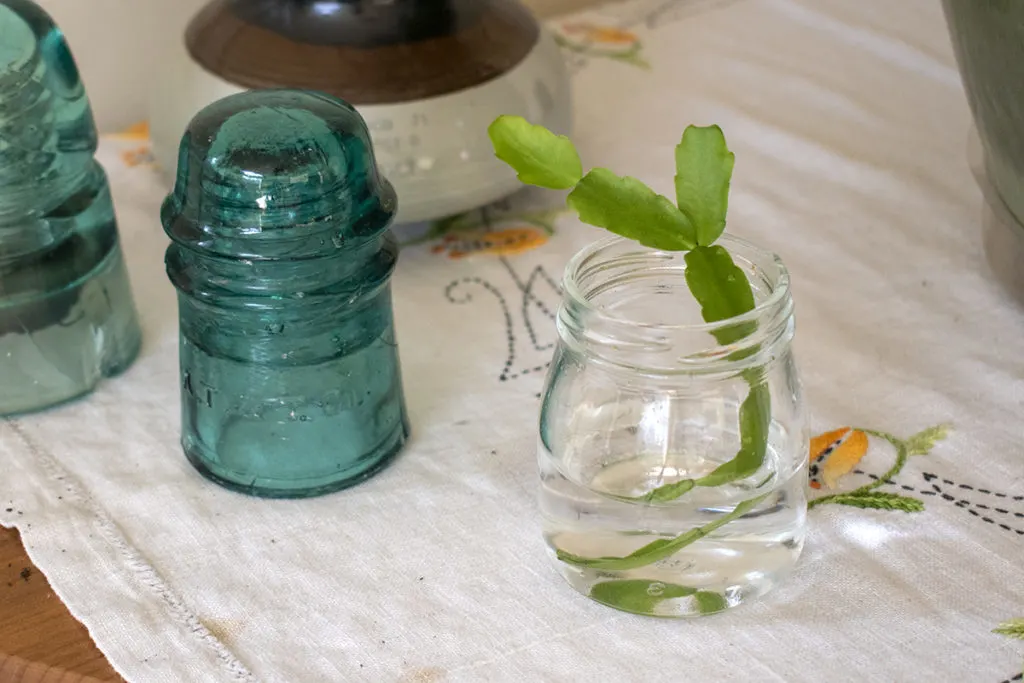
Within 4-6 weeks, you should have roots, and your tiny Schlumbergera will be ready to plant.
And that’s that; pretty easy, right?
